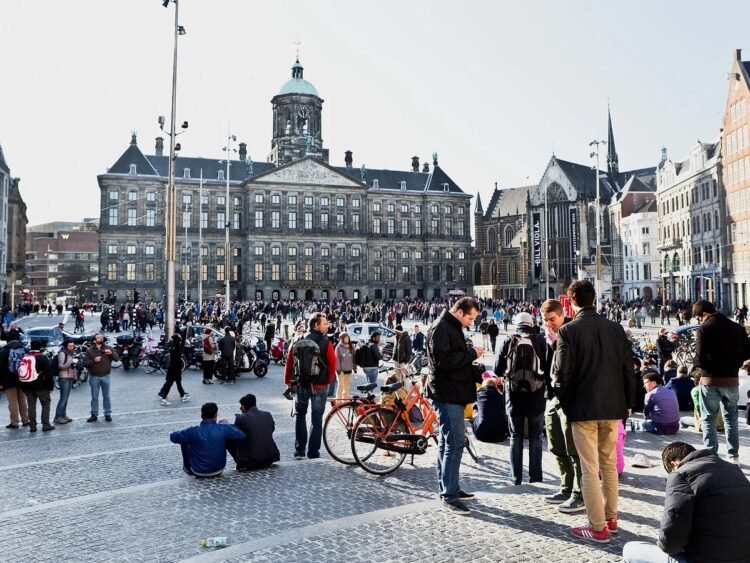“compiled: Elmili TK”
Overtourism in European cities has reached a breaking point, sparking growing frustration among residents. In Paris’ Montmartre neighborhood, Olivier Baroin says his once-village-like community now feels overrun. Local shops have vanished, replaced by tourist cafés, tuk-tuks, and souvenir stands.
“I had no choice but to leave,” said Baroin, who listed his apartment after streets turned pedestrian-only to accommodate crowds. For him, navigating with a disability became impossible without car access.
Paris at a Crossroads
The Sacré-Cœur Basilica now welcomes up to 11 million visitors each year, more than the Eiffel Tower. Residents describe the area as “Disneyfied,” while banners protesting tourist policies hang from balconies. Local staples like butchers and bakeries have disappeared, forcing residents to rely on deliveries.
The unrest mirrors tensions at the Louvre, where staff staged a strike over overcrowding. The museum handled 8.7 million visitors in 2024, nearly double its designed capacity.
Europe’s Widespread Struggles
Across Europe, cities are taking drastic steps. Venice now charges day-trippers an entry fee, while Barcelona residents protest in the streets against cruise ships and short-term rentals. Athens has imposed daily limits at the Acropolis to protect its fragile ruins.
Urban planners warn that historic neighborhoods risk becoming “zombie cities” — beautiful but emptied of real community life. Critics argue that residents are being displaced in favor of short-term guests.
Future Challenges
Paris has begun cracking down on unlicensed rentals, but experts say more action is needed. With global tourism set to rise as the middle class expands, overcrowding will intensify. By 2050, the UN projects the world’s population will reach nearly 10 billion, further fueling demand for iconic destinations.
For now, tourists like American visitor Adam Davidson marvel at the lively streets. But for residents, the question remains: will they still have a place in the postcard-perfect cities they once called home?

 English
English



























































